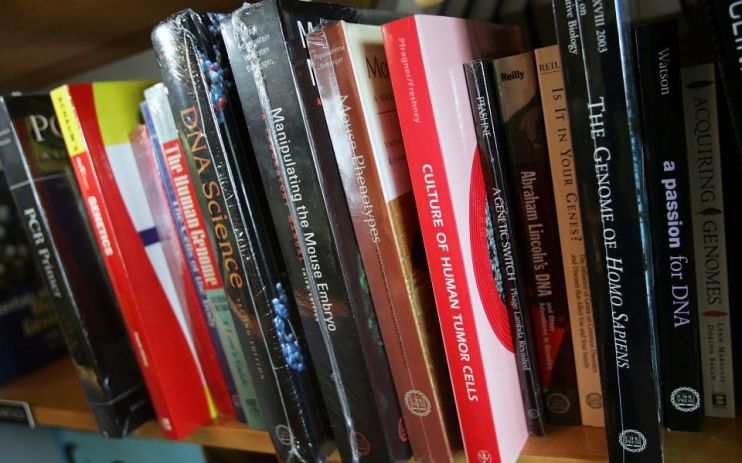Pearson shares sink as print woes hurt 2020 profit target

Investors sent Pearson’s share price down to its lowest level since 2008 in early trading today after the education publisher warned its painful shift to digital would drag into 2020.
Pearson’s legacy print textbook business sank another 12 per cent over 2019, the firm said today as it predicted annual profit of £590m, at the bottom range of its guidance.
That left Pearson with flat revenue for 2019, and a prediction of lower operating profit of between £500m and £580m for 2020. And the firm also said its chief financial officer would leave this year.
The publisher’s share price dropped 10.2 per cent to 555.2p as shareholders balked at chief executive John Fallon’s warning that he could not set an end date for its print problems.
“We are likely to see similar headwinds in 2020 but from a smaller base,” Fallon, who had previously announced he will step down this year, told media.
Students stopping buying Pearson’s physical textbooks and a sharp 45 per cent drop in print bundled book and ebook sales drove the decline.
Digital comprised 63 per cent of revenue in 2019 while print generated 37 per cent, compared to 2018’s split of 55 per cent and 45 per cent respectively.
However, the education publisher warned that it is not seeing good ebook sales to replace flagging textbook revenue.
‘We underestimated bruising digital shift’
“We;’re now seeing far more students renting or subscribing to an ebook rather than buying a textbook,” Fallon said, adding that the publisher lost around $70m (£53.6m) as a result last year.
Fallon said the firm is “now closer” to completing its digital transformation but admitted “we have underestimated” the scale of the shift required.
“We’ve been through a pretty bruising transition to digital,” he said.
“The landing is proving to be bumpier than we thought, but that means we will get there sooner than we thought,” Fallon added.
Weaker print sales were offset by a strong performance in the wider 76 per cent of Pearson, the firm said in its trading update.
That larger part of Pearson grew four per cent overall. Pearson’s English language test grew 17 per cent in popularity and professional certification rose 10 per cent.
A £350m share buyback is set to start today from the sale of Pearson’s stake in Penguin Random House, while Pearson delivered annual savings of £335m at the end of 2019.
Chief financial officer Coram Williams today said he will leave the company later this year for a role in Europe. Deputy CFO Sally Johnson will take over the role after a “smooth and orderly transition”.
‘No end in sight’ for Pearson’s print troubles
Nicholas Hyett, equity analyst at Hargreaves Lansdown, said part of the problem is students paying less for digital compared to what they paid for print textbooks.
“The struggling US Higher Education business has once again blotted Pearson’s copybook. Operational hiccups costing the group market share haven’t helped,” he added.
“There’s better news outside the US, with more specialist academic English and professional tests performing well. But, having sold off the last of its publishing assets with the disposal of Penguin Random House the group is increasingly exposed to an education market in turmoil, and with current trends expected to continue into 2020, there’s no obvious end in sight.”
Pearson shows little progress on core problem
AJ Bell investment director Russ Mould added that shares were on the “back foot” after rising yesterday in anticipation of today’s update, which investors have now judged a “failure”.
“Although things aren’t getting much worse, the company still faces the problem which has proved its undoing over several years,” Mould said.
“Fundamentally US students are not buying as many expensive academic textbooks, instead using ebooks and online journals. And Pearson’s own digital business isn’t growing fast enough to make up the shortfall.
Read more: Pearson bags Home Office contract to offer English language tests
“Things don’t look likely to get any better here this year based on the company’s outlook comments. Cost cutting helped to mitigate the impact on profit in 2019 and the company may find it difficult to repeat that trick this year.
He added that Williams’ departure as CFO is a double-edged sword: “While a fresh approach to running the business might be welcome, it could also result in a loss of momentum in the transformation of the group.”